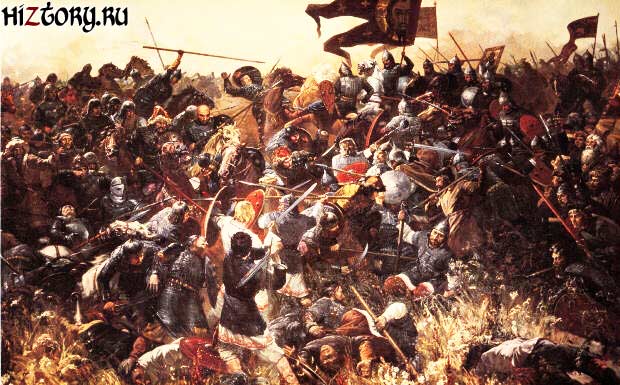The Battle of Kulikovo, fought on September 8, 1380, stands as a defining moment in Russian history. It was a pivotal clash between the united forces of Dmitry Donskoy, the Prince of Moscow, and the Mongol-Tatar army led by Mamai, the Khan of the Golden Horde. This historic confrontation not only marked the beginning of the decline of Mongol-Tatar domination in Russia but also laid the foundation for the eventual rise of the Russian state. In this article, we will delve into the key events, strategies, and significance of the Battle of Kulikovo, shedding light on its lasting impact.To fully comprehend the significance of the Battle of Kulikovo, it is crucial to understand the historical context. For over two centuries, the Mongol-Tatars ruled over Russia, subjecting the Russian principalities to tribute payments and political subjugation. However, as the Mongol Empire began to fragment, internal conflicts weakened their hold on the region. The ascendancy of Dmitry Donskoy as the Prince of Moscow marked a turning point, as he sought to assert his independence and unite other Russian principalities against the Mongol-Tatars.
Dmitry Donskoy’s decision to confront the Mongol-Tatars head-on culminated in the Battle of Kulikovo. The battle took place near the Don River, in the Tula region of present-day Russia. Despite being outnumbered, Dmitry’s forces were bolstered by a coalition of Russian principalities, including the principality of Suzdal and Nizhny Novgorod. The Mongol-Tatar army, led by Mamai, consisted of battle-hardened warriors with a formidable reputation.
The Battle of Kulikovo witnessed the implementation of different strategies by both sides. Dmitry Donskoy adopted a defensive strategy, utilizing natural obstacles to negate the numerical advantage of the Mongol-Tatars. His troops positioned themselves on the high ground, protected by forests and the Don River. This defensive formation enabled them to resist the Mongol-Tatar cavalry charges.
Mamai, on the other hand, sought to exploit the Mongol-Tatars’ cavalry superiority. He launched numerous attacks, aiming to break the Russian defensive lines and overwhelm Dmitry’s forces. However, Dmitry’s troops held their ground, inflicting heavy casualties on the Mongol-Tatars. The pivotal moment arrived when Dmitry led a decisive cavalry charge, targeting Mamai’s command post. This assault resulted in the death of Mamai’s trusted general, Kazy-Girey, destabilizing the Mongol-Tatar forces.
The Battle of Kulikovo marked a significant turning point in Russian history. Dmitry Donskoy’s victory shattered the myth of Mongol-Tatar invincibility and inspired a sense of national unity among the Russian people. It emboldened other Russian principalities to challenge Mongol-Tatar authority and paved the way for the eventual liberation of Russia from Mongol domination. The battle also highlighted the importance of strategic planning, unity, and determination in achieving victory against seemingly insurmountable odds.
Furthermore, the Battle of Kulikovo became a symbol of Russian resistance and patriotism, shaping the collective consciousness of future generations. It demonstrated the resilience and courage of the Russian people in the face of adversity, fostering a sense of national identity and pride. The battle’s legacy reverberates in Russian culture and literature, serving as a source of inspiration for numerous works of art, poetry, and historical narratives



















Add Comment